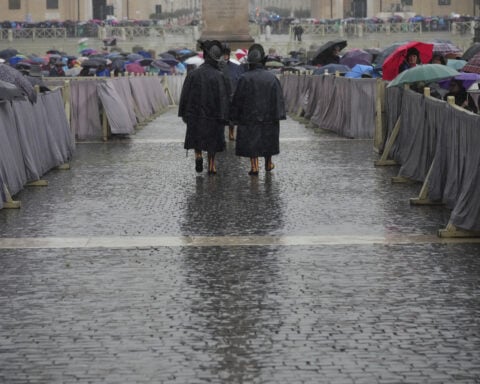The phrase "pick-me girl" emerged as various generations discussed internalized sexism - specifically, the issues that arise when women seek validation from others, particularly men. Middle and high school girls are starting to call out friends who seem too eager to please boys or try to fit into traditional ideas of what a girl should be like.
While the intentions behind the "pick-me girl" accusation are complex, mental health experts urge greater empathy from teens. They note that these behaviors often come from a developmentally normal desire to find belonging within friend groups. In today's hyperconnected era, with enhanced visibility through social platforms, the judgments can feel especially harsh. There are better paths toward female empowerment that avoid marginalizing those still forming their identities.
The phrase traces back to a 2005 episode of ABC's long-running medical drama "Grey's Anatomy," in which Meredith Grey beseeches Derek Shepherd to pick her over his wife. More recently, on apps like TikTok, videos mock "pick-me" mannerisms like enthusiastically choosing pizza over salad to impress guys or rejecting traditionally feminine hobbies. These posts have amassed billions of views concerning clinicians and their psychological impacts. You can find more examples of "Pick-me-girl" situations here.
"Calling adolescent girls' pick-me publicly on social media platforms intensifies social anxieties and pressures during an already challenging coming-of-age when youth are figuring out who they are," says Dr. Regine Galanti, a clinical psychologist and author based in Long Island, NY. "Rather than judgment, we need more thoughtful dialogue around the root insecurities driving these behaviors to foster empowerment for young women."
Research highlights that the adolescent years constitute an identity crisis defined by instability in personality, interests, and social dynamics. Teens naturally cycle through different roles and values systems to determine what suits them best. Those labeled "pick-me girls" likely crave belonging within certain crowds, turning to mild self-adjustments to smooth social interactions.
For girls genuinely drawn towards traditionally masculine stereotypes, the accusations can create a double bind where acting authentically still elicits backlash. "If a girl prefers sitting around drinking beer with the guys, pursuing that makes her a 'pick-me' target," Dr. Galanti explains. "It delegitimizes her actual preferences."
Rather than antagonism, experts advocate responding to perceived pick-me tendencies with patience and care. "We must consider the societal messaging young women receive about the need for validation and narrow conceptions of worth," says Bayu Prihandito, a life coach who aids female clients in overcoming limiting narratives.
The currents of competition and internalized sexism swirling through female social circles further complicate the situation. Girls often feel compelled to establish superiority over peers or reject anything perceived as too feminine. "They aren't necessarily aiming to denigrate other women," Dr. Galanti clarifies. "They are trying to gain greater proximity to groups that seem higher status."
As social media continues redefining youth cultural trends, intentionally inclusive digital communities could provide healthier outlets for identity exploration. There are also opportunities for schools to implement targeted programming, build self-esteem, or analyze media influences.
Rather than attacks, constructive dialogue emphasizing common ground could progress collective understanding. "At the core, we all seek belonging," Mr. Prihandito says. "If we recognize universal human wants, we can extend more compassion."
Through emotional intelligence and unity, today's young women can shift away from the false dichotomy of the "pick-me" versus the "like other girls" trap. There are multitudes between those extremes waiting to be embraced on the journey toward self-love and purpose.
Another study unpacks the problematic nature of the "pick-me girl" label circulating online. Clinical psychologist Dr. Regine Galanti explains that no one self-identifies with the insulting term. Instead, girls get accused of being "pick-me" by peers and feel confused about how to respond.
Dr. Galanti notes that the desire for belonging drives most adolescent behavior to be misconstrued as pandering to boys. During the identity formation years, youth understandably crave social acceptance and community. They may unconsciously adapt mannerisms or interests to fit better with high-status groups.
Singling out and ridiculing those attempts often backfires, however. It can exacerbate pressure and self-consciousness at an already uncertain life stage. The public shaming on mass digital platforms compounds the issue, given middle and high schoolers' immersion in social media.
According to parenting coach Alyson Schafer, snap judgments about internal motivations usually miss nuance and cause more harm than good. She advises having compassion for the personal struggles beneath troubling behaviors. Rather than accusations, asking questions with curiosity can uncover root causes.
For example, a girl obsessed with male approval may battle low self-worth or lack other healthy connections. Reactionary labeling distances her further from support systems to work through deeper wounds. Or a budding tomboy feels torn between exploring masculine interests and backlash for diverging from feminine norms. Discussing those double binds without judgment makes space for self-discovery.
Schafer also points to the competitive social ecology surrounding girls and women. They receive training from a young age to compare themselves against each other in an endless fight for validation. Many "pick-me" tendencies come not from hostility but simply from wanting to keep up with broader social currents.
Lighthearted memes can seem harmless fun, but repeatedly making individuals the butt of jokes has consequences. Besides psychological impacts on targets, the habit normalizes cruelty in conflict resolution. We rarely see compassionate solutions lifted as appropriate responses.
Educational institutions have opportunities to model kinder cultural rehabilitation around tolerance, ethics, and emotional intelligence. According to school counselor Carla Ferri, teachers could select video clips depicting realistic dynamics between students. Small groups can analyze the conflicts with discussion prompts like: "What feelings might be underlying those behaviors?" or "Imagine alternative reactions that allow mutual understanding."
Simple roleplay also builds empathy and communication abilities. Pairs receive scenarios involving judgment about someone's choices or personality. One person articulates concerns while the other listens and then responds thoughtfully. Rotating positions lets everyone try on different perspectives.
Beyond skill building, schools might rethink broader values messaging and whether they reinforce restrictive social hierarchies. Assemblies could celebrate students of all gender expressions and interests. Events spotlighting diversity within sports, arts, academics, etc, remind people they don't have to fit narrow molds.
Workshops facilitated by counselors, nurses, or trusted outside experts provide safe spaces for girls themselves to explore group dynamics. Mixed-grade sessions allow cross-mentorship. Younger students gain reassurance seeing older ones overcome peer pressure and chart authentic paths.

 Trump's Social Security chief backs down from 'shutting down' agency
Trump's Social Security chief backs down from 'shutting down' agency
 New Hampshire settles youth center abuse case for $10 million
New Hampshire settles youth center abuse case for $10 million
 A flyer says a United Airlines pilot forcibly removed him from an airplane bathroom. Now he's suing
A flyer says a United Airlines pilot forcibly removed him from an airplane bathroom. Now he's suing
 Father of the last living American hostage in Gaza hopes Trump can bring his son home
Father of the last living American hostage in Gaza hopes Trump can bring his son home
 Germany temporarily shuts embassy in South Sudan amid fears of civil war
Germany temporarily shuts embassy in South Sudan amid fears of civil war
 Venezuela reaches agreement with US to resume repatriation flights of migrants - statement
Venezuela reaches agreement with US to resume repatriation flights of migrants - statement
 How NASA’s waylaid astronauts finally got home
How NASA’s waylaid astronauts finally got home
 Pentagon is the latest agency to announce a leak investigation that could include polygraphs
Pentagon is the latest agency to announce a leak investigation that could include polygraphs
 Virginia hires VCU coach Ryan Odom, whose father was a Cavaliers assistant
Virginia hires VCU coach Ryan Odom, whose father was a Cavaliers assistant
 George Foreman remembered as a ‘great fighter’ by President Trump and a ‘knockout artist’ by Magic Johnson
George Foreman remembered as a ‘great fighter’ by President Trump and a ‘knockout artist’ by Magic Johnson








